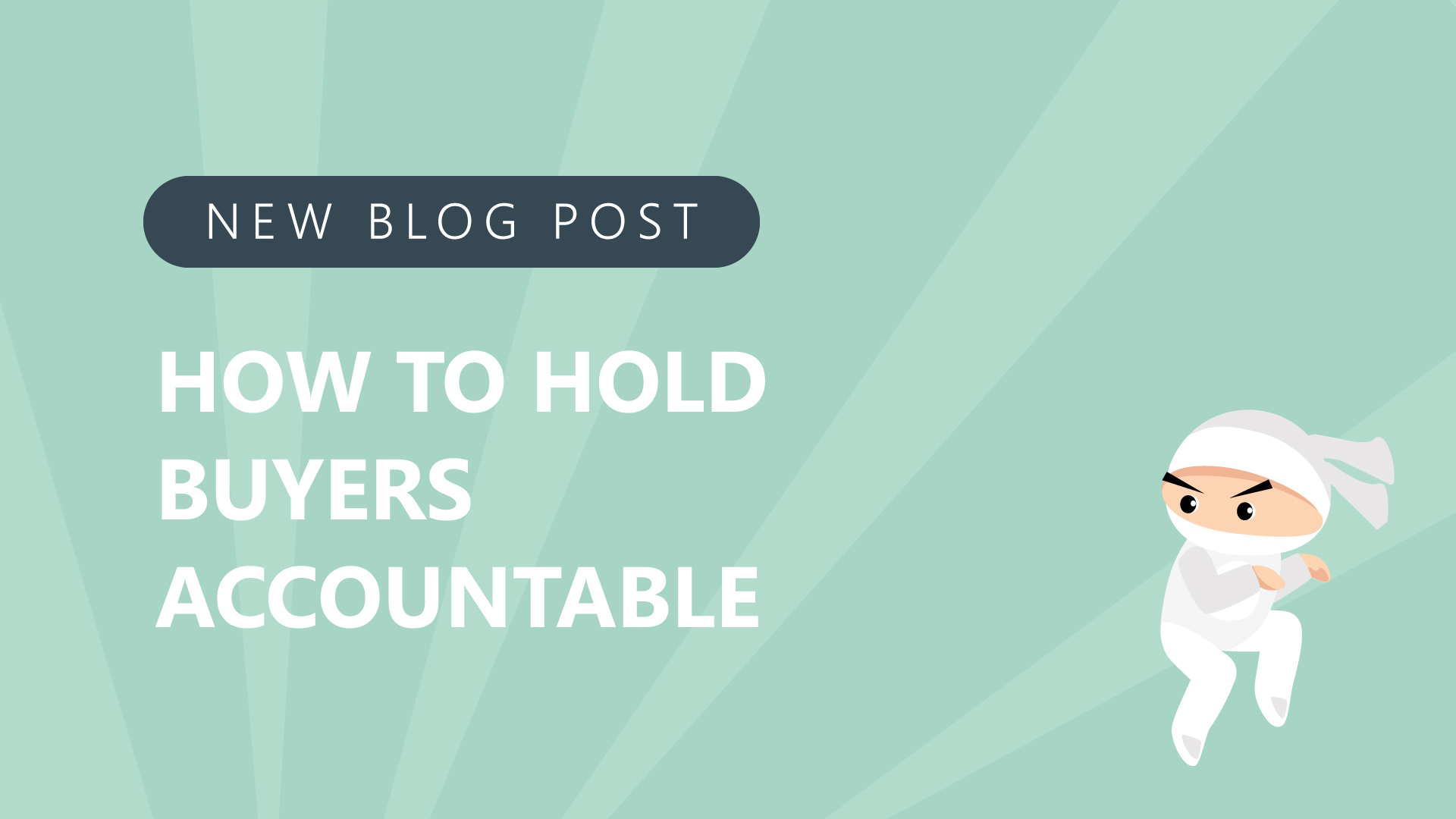Most salespeople are afraid to hold buyers accountable. They feel like they’ll damage the perceived relationship by saying, “You said this, and now you have to follow through.” Let’s start by tackling the first issue: The relationship.
Does the “relationship” only exist in your head?
The relationship that most sellers think they have with customers usually only exists in their heads. Why? Because sellers often confuse a relationship with the buyer being responsive. The key thing is to build rapport with trust.
When a buyer gives you an order, they’re saying, “I trust you to deliver on this.” It’s about building trust, not building a relationship. The relationship comes from the sale. If you’re waiting for a relationship to happen before you get an order, you will starve. Your sales should not be dependent on developing a relationship.
Secondly, a good relationship is a profitable relationship. Are you being used to check prices, drive down prices, or get the lowest possible cost? If they’re using you to get something they want—and aren’t buying from you—you may be an abused partner when you think you have a good relationship.
Hamish had three separate conversations with three different CEOs. All three would take free things from salespeople all day long. But they’re looking for people who will help them get from where they are to where they need to be. They want their problems solved. A relationship doesn’t have to exist for that to happen. A relationship can be built once you’ve delivered what you’ve promised.
But once you have an agreement to move on to the next step of the sales process, how do you navigate it? How do you hold buyers accountable for what they say they’ll do?
How to hold buyers accountable
Hamish Knox teaches his clients that you have the right to be treated as an equal because you’re a human having a human-to-human conversation. It doesn’t matter if someone is the CEO of a company. You are not a supplicant in the conversation.
When a buyer makes a commitment, you will often need information to get them a proposal. Get a clear timeline to get that information based on what works for them. If they say they can get you the information by “Wednesday,” you can say, “If you’re in the middle of something and I don’t get that information by Wednesday, how do you want me to communicate with you?” This gets the buyer to design their own box.
Fast forward to your next conversation. Let’s say you haven’t gotten the information you need, yet they’re asking for the proposal. You want to say, “I’m confused. My recollection is that I was going to get your user data by last Wednesday, which would have allowed me to complete the proposal by today. Maybe I misheard that, though?” It avoids laying blame on them. Take ownership so they don’t feel accused, even if they’re the ones who dropped the ball.
Learn more about navigating buyer requests and holding them accountable in episode #421 of the Negotiations Ninja podcast.

